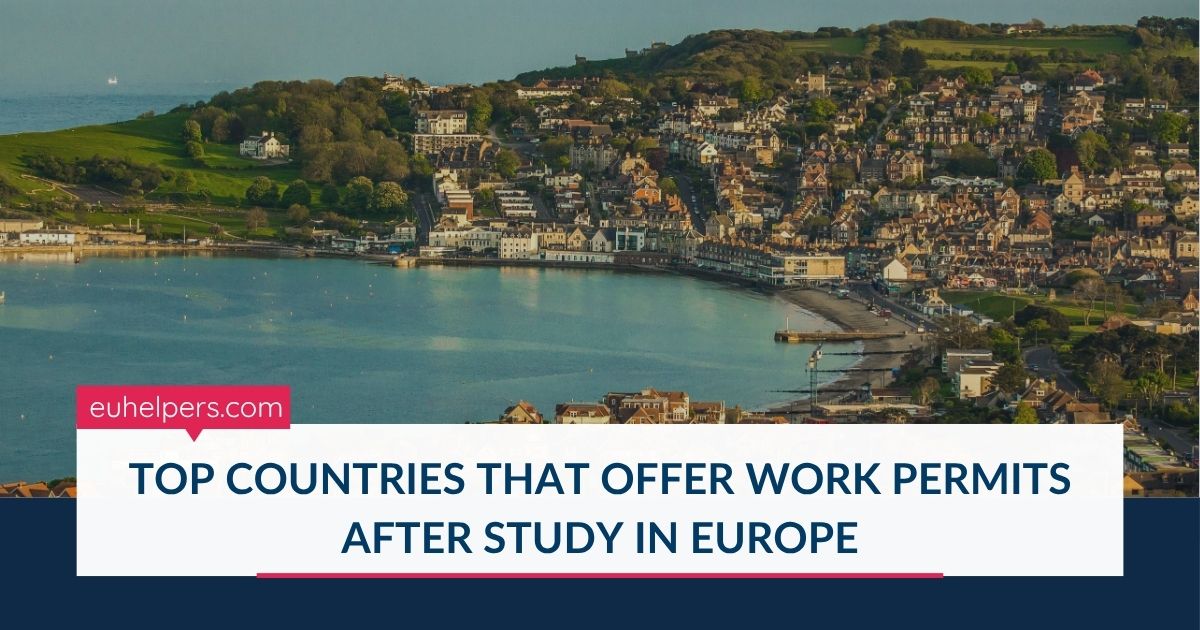
Europe has become an increasingly attractive destination for international students—not just for its world-class education system but also for the promising career prospects available after graduation. Several European countries have implemented favorable post-study work visa policies that enable international graduates to gain professional experience, contribute to the local workforce, and even transition into long-term residency.
1. Germany: 18-Month Job Seeker Visa and Strong Demand for Talent
Germany remains one of the top choices for international students, thanks to its robust economy and welcoming post-graduation policies. Upon completing their degree, international graduates can apply for an 18-month Job Seeker Visa, allowing them to stay and find work related to their field of study.
Key advantages:
-
Strong demand for skilled workers, especially in STEM fields
-
Affordable education and living costs
-
High likelihood of securing long-term employment and residency
2. United Kingdom: Graduate Route for Work or Job Search
The UK offers a well-defined Graduate Route, which permits international graduates to remain in the country to work or look for work after completing their degree.
Highlights:
-
2 years post-study work period for most graduates
-
3 years for doctoral (PhD) graduates
-
Access to job opportunities in diverse industries including finance, healthcare, IT, and more
3. France: Autorisation Provisoire de Séjour (APS)
France actively encourages international talent through its APS (Provisional Residence Permit) scheme. Graduates can apply for a one-year permit, which allows them to work or look for a job in their field.
What to expect:
-
Renewable residence permits under certain conditions
-
Supportive infrastructure for international students and professionals
-
Opportunities particularly strong in luxury, design, tech, and academia
4. Netherlands: Orientation Year Visa
The Netherlands offers the Orientation Year (zoekjaar) visa, which grants international graduates 12 months to find a job or launch a business. It is one of the most startup- and innovation-friendly countries in Europe.
Why it stands out:
-
High English proficiency and a large number of English-taught programs
-
Opportunities in fields like engineering, IT, logistics, and sustainability
-
Access to residence permits for highly skilled migrants after employment is secured
5. Ireland: Third Level Graduate Scheme
Ireland’s booming tech sector and open immigration policies make it a top choice for international graduates. Under the Third Level Graduate Scheme, eligible non-EEA students can stay in Ireland for up to 24 months (depending on the level of qualification) to seek work.
Key sectors:
-
Information technology, pharmaceuticals, finance
-
Strong links with multinational corporations like Google, Apple, and Facebook
Other Noteworthy Destinations for Post-Study Work in Europe
-
Sweden: Graduates can stay for up to 12 months post-study to find employment, with good prospects in sustainability, tech, and life sciences.
-
Finland: Encourages international graduates to stay, offering 1–2 year residence permits for job searching or entrepreneurship.
-
Switzerland: While not an EU member, it has a thriving job market in banking, research, and pharmaceuticals, and offers options for graduates to stay and work.
-
Austria: International graduates can apply for a 12-month residence permit to seek employment, particularly in sectors where Austria faces skill shortages.
-
Denmark: Offers a “Stay Back Scheme” allowing graduates to stay up to two years to find work, with strong demand in IT, engineering, and healthcare.
What to Consider When Choosing a Country
When deciding where to study and work in Europe, consider the following:
-
Post-study visa length and eligibility
-
Job market demand in your field
-
Long-term residency or permanent settlement options
-
Language requirements
-
Cost of living and lifestyle preferences
Europe offers a welcoming environment for international graduates looking to start their careers. From Germany’s 18-month job seeker visa to the UK’s Graduate Route and the Netherlands’ Orientation Year, these programs are designed to retain global talent and help students transition smoothly from education to employment. With careful planning and country-specific research, international graduates can find rewarding opportunities across the continent.
